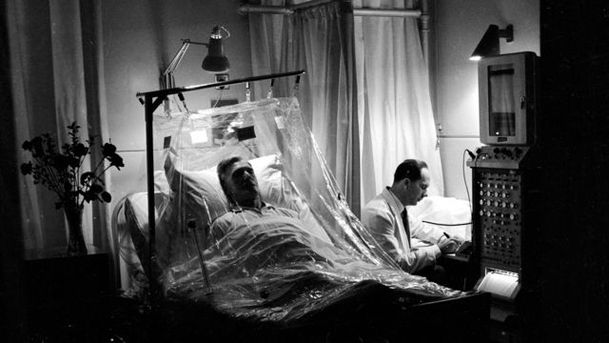Britain on the Bottle: Alcohol and the State - The Doctors Take Over

A Ministry of Health Report in 1956 referred to heavy drinking as something that had been an issue in Britain "at times in the 18th and 19th century". In 1961 the Home Secretary RA Butler confidently told the Commons that "public drunkenness is not a problem". But such denial couldn't last long. As part of his series on the politics of alcohol in Britain, Mark Whitaker focuses on the decision by government in 1962 to build specialist alcoholic treatment units around the country. It was called "the first official recognition of alcoholism as an illness which should be the responsibility of doctors", and was an acknowledgement that drinking was on the increase. This period saw the first specific warnings about teenage drinking. But controversies followed. Several Regional Hospital Boards were reluctant to invest in the new units; research suggested that in-patient treatment was not necessarily the most effective; and the strategy was attacked for being of limited value to those most in need of help - the unemployed meths drinkers of 'Skid Rows' in the major cities. This was when the pioneering psychiatrist Griffith Edwards first proposed his methods for tackling drunkenness as a public health issue, based on its being recognised as a community-wide problem. Edwards contributes to the programme, while actors read documents from the 1960s. Producer: Mark Whitaker A Square Dog production for BBC Radio 4.